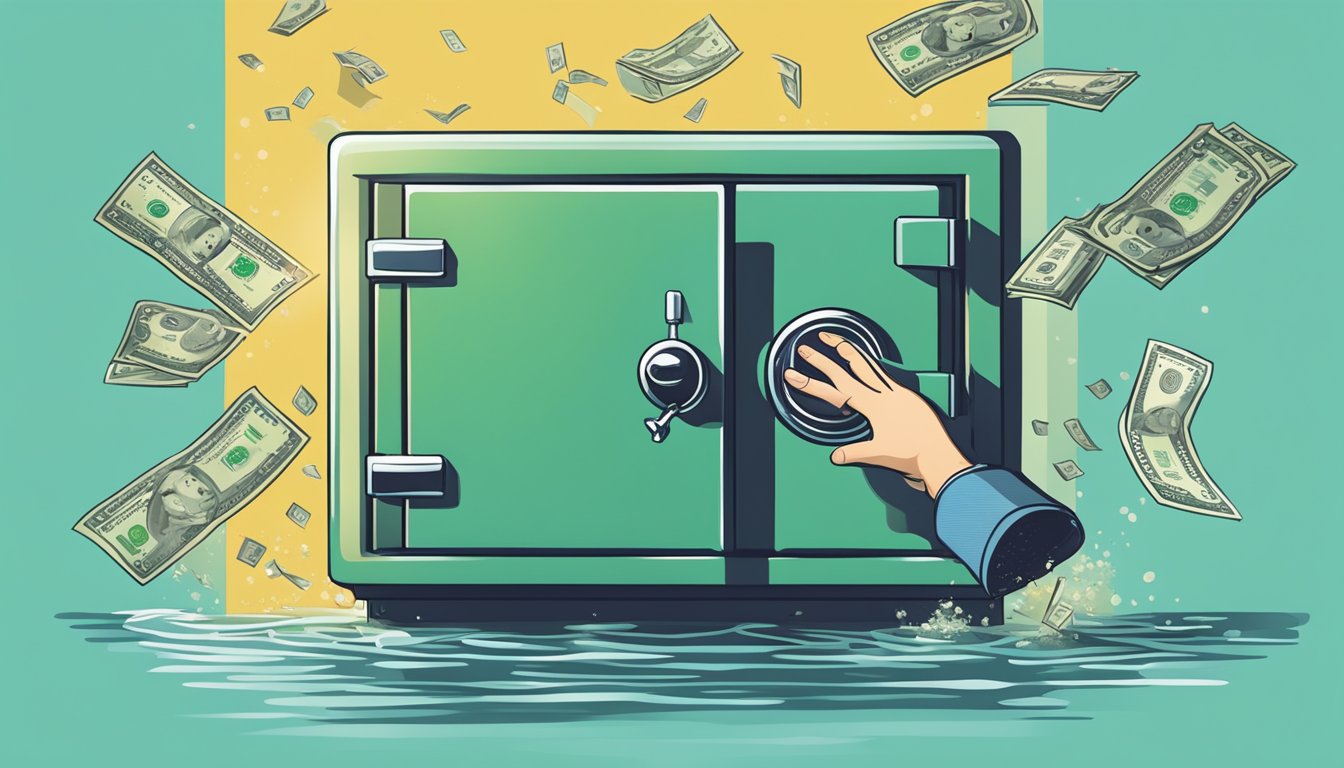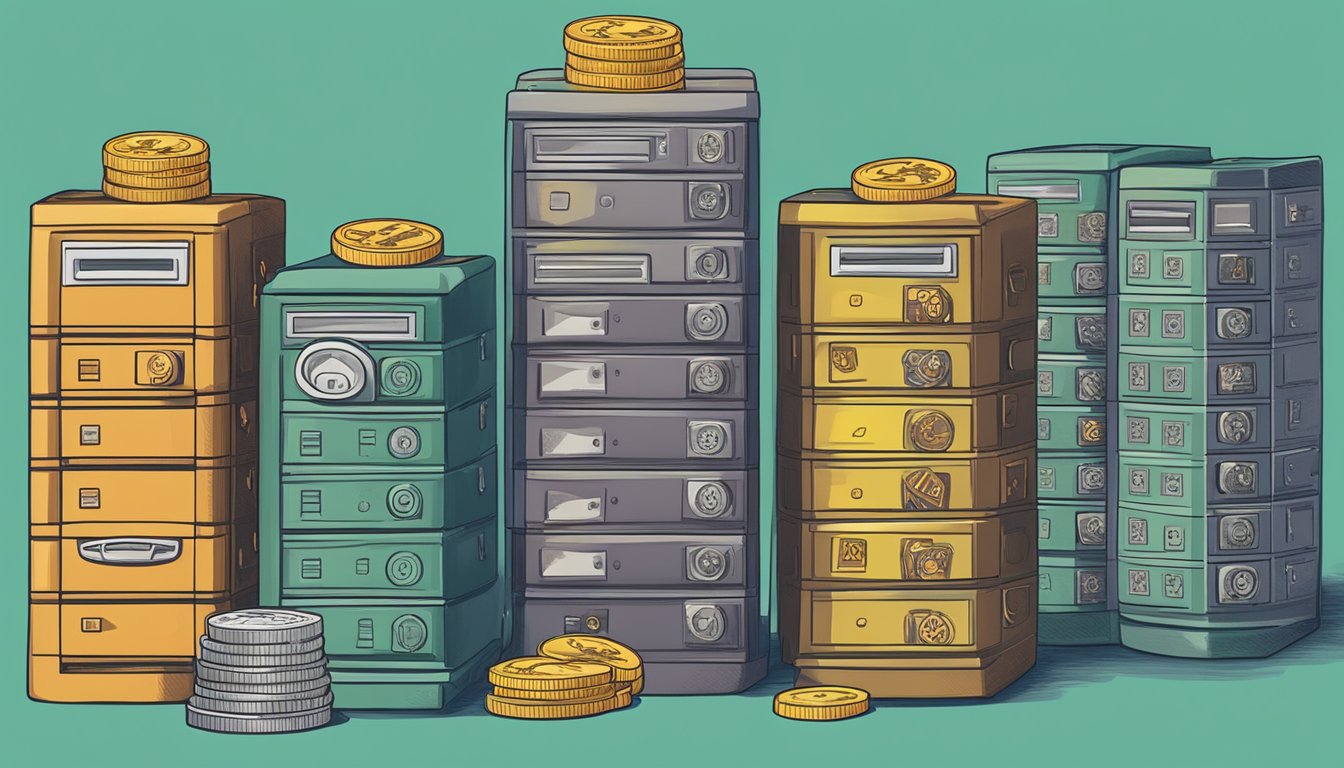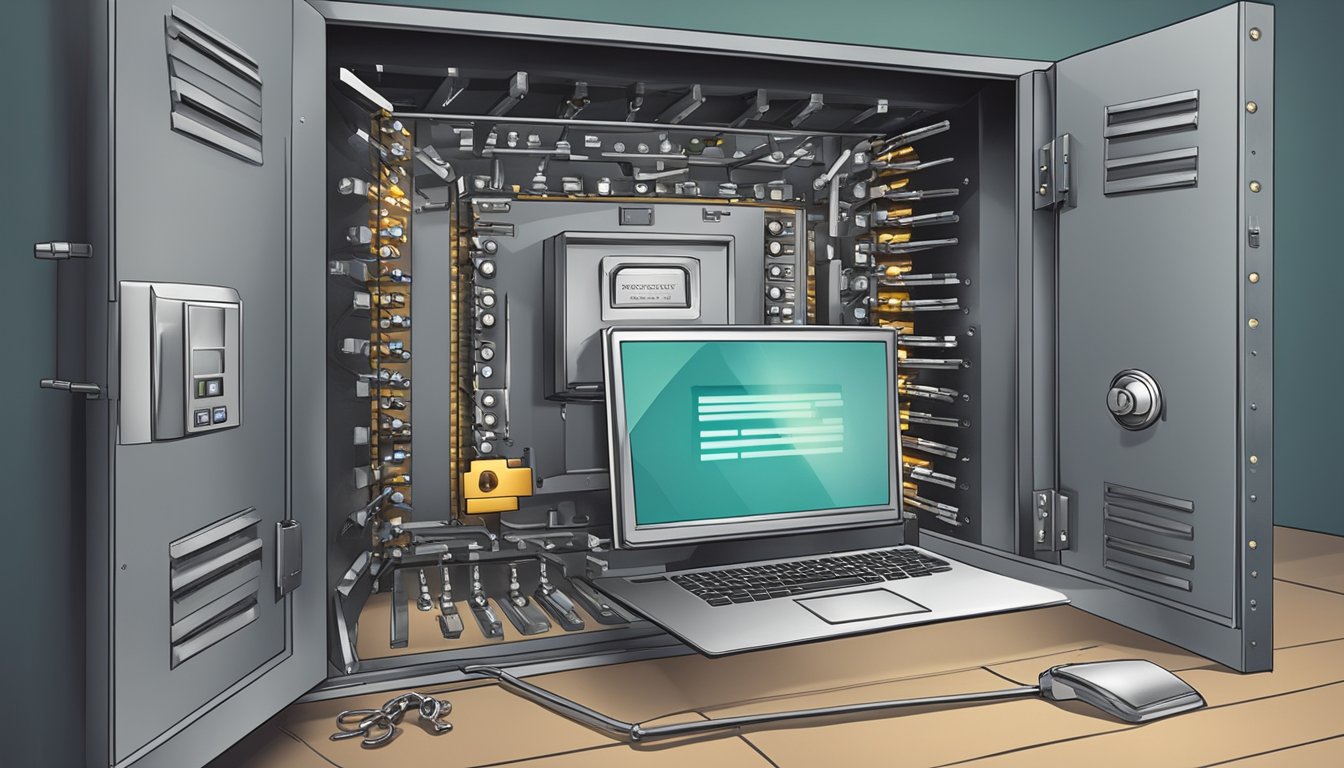If you’re looking for a low-risk investment option, fixed deposits can be an attractive choice. They offer a guaranteed rate of return, making them a popular choice for those who want to earn a steady income on their savings. However, there are also some disadvantages to fixed deposits that you should be aware of before investing.

One of the main disadvantages of fixed deposits in Singapore is their limited earning potential. While they offer a guaranteed rate of return, this rate is often lower than the returns you could earn from other investment options. In addition, fixed deposits do not adjust for inflation, which means that the purchasing power of your money may decrease over time.
Another concern with fixed deposits is accessibility and liquidity. When you invest in a fixed deposit, your money is tied up for a set period of time, which can range from a few months to several years. This means that you won’t be able to access your funds during this time, which can be a problem if you need the money for an emergency or unexpected expense.
Key Takeaways
- Fixed deposits offer a guaranteed rate of return but have limited earning potential compared to other investment options.
- Fixed deposits are not very liquid, which means that you won’t be able to access your funds during the investment period.
- Before investing in fixed deposits, consider your investment goals and compare them to other investment alternatives to determine the best option for you.
Limited Earning Potential

If you are looking for an investment option that offers high returns, fixed deposits may not be the best choice for you. Fixed deposit rates are generally lower than other investment options, such as stocks or mutual funds. This is because fixed deposit interest rates are fixed and do not change with market fluctuations.
Capped Interest Rates
Fixed deposit accounts often come with a capped interest rate. This means that the interest rate offered on a fixed deposit account will not increase, even if market interest rates rise. This can be a disadvantage if interest rates rise significantly, as you will not be able to take advantage of the higher rates.
Impact of Inflation
Another disadvantage of fixed deposit accounts is that the returns may not keep up with inflation. Inflation can reduce the purchasing power of your money over time. If the interest rate offered on a fixed deposit account is lower than the inflation rate, your returns may not be enough to keep pace with inflation.
While fixed deposit accounts offer a guaranteed return on your investment, they may not be the best option for investors who are looking for higher returns. If you are considering investing in fixed deposits, it is important to compare the interest rates offered by different banks and to consider the impact of inflation on your returns.
Accessibility and Liquidity Concerns

When it comes to fixed deposits, accessibility and liquidity are two major concerns that you need to keep in mind. While fixed deposits offer a safe and secure investment option, they are less liquid than other investment vehicles. This means that you may not be able to access your funds when you need them the most.
Early Withdrawal Penalties
If you need to withdraw your funds before the maturity date, you may be subject to early withdrawal penalties. This means that you may receive less interest than you were expecting, or you may not receive any interest at all. It’s important to carefully read the terms and conditions of your fixed deposit account to understand the early withdrawal penalties that may apply.
Lock-in Period Restrictions
Fixed deposits also come with lock-in period restrictions. This means that you cannot withdraw your funds before the maturity date without incurring penalties. This is a major disadvantage if you need to access your funds in case of an emergency.
In contrast, other investment vehicles such as savings accounts or money market accounts offer more liquidity and flexibility. While the returns may be lower, you have the ability to withdraw your funds without incurring penalties.
Overall, fixed deposits are a safe and secure investment option, but they may not be the best choice if you need access to your funds in case of an emergency. It’s important to carefully consider your investment goals and needs before choosing a fixed deposit account.
Investment Flexibility and Diversification

When it comes to investing, flexibility and diversification are essential components of any successful portfolio. Unfortunately, fixed deposits in Singapore may not provide the level of flexibility and diversification that you need to maximize your investment returns.
Opportunity Costs of Fixed Allocation
One of the main disadvantages of fixed deposits is that they tie up your money for a fixed period of time. While this may provide a sense of security, it also means that you may miss out on other investment opportunities that arise during that time.
For example, if the stock market experiences a sudden surge, you may not be able to take advantage of it because your money is locked into a fixed deposit. This means that you may miss out on potential gains and limit your investment returns.
Lack of Portfolio Diversification
Another disadvantage of fixed deposits is that they do not provide much in the way of portfolio diversification. While fixed deposits may be low-risk, they also offer relatively low returns compared to other investment options.
If you rely solely on fixed deposits for your investment portfolio, you may miss out on the potential gains that other investments, such as stocks or bonds, can provide. This lack of diversification can also increase your investment risk, as you are not spreading your money across different asset classes.
To diversify your portfolio, consider investing in a mix of different asset classes, such as stocks, bonds, and real estate. This can help to spread out your investment risk and provide you with a more balanced portfolio.
Overall, while fixed deposits may offer a sense of security, they may not be the best option for maximizing your investment returns. By diversifying your portfolio and being flexible with your investment options, you can increase your chances of success in the long run.
Financial Institutions and Security

When it comes to fixed deposits in Singapore, one of the primary concerns is the financial institutions’ security. You want to ensure that your money is safe and secure, especially since you’re entrusting it to a third party. In this section, we’ll discuss the two primary aspects of security: bank-specific risks and insurance and protection limits.
Bank-Specific Risks
Different banks have different credit ratings, which can affect their financial stability and, in turn, the safety of your fixed deposit. For example, UOB and Maybank are two of the most well-known banks in Singapore, with strong credit ratings that indicate their financial stability. On the other hand, ICBC has a lower credit rating, which may make some people hesitant to deposit their money with them.
It’s important to research the bank’s credit rating and financial stability before opening a fixed deposit account with them. This can help you make an informed decision and ensure that your money is safe.
Insurance and Protection Limits
In Singapore, fixed deposits are insured by the Singapore Deposit Insurance Corporation (SDIC) up to $75,000 per depositor per Scheme member. This means that if the bank fails, you will be reimbursed up to that amount. However, it’s important to note that this insurance only covers deposits in savings, current, fixed deposit, and other deposit accounts.
If you have multiple accounts with the same bank, the $75,000 limit applies to the total amount of deposits across all accounts. For example, if you have a savings account with a balance of $50,000 and a fixed deposit account with a balance of $30,000, you would only be insured up to $75,000 in total.
It’s also important to note that not all banks in Singapore are members of the SDIC. Before opening a fixed deposit account, make sure that the bank is a member of the SDIC to ensure that your deposits are insured.
Overall, while fixed deposits in Singapore are generally considered a safe and low-risk investment option, it’s important to do your research and understand the risks and limitations involved. By researching the bank’s credit rating and ensuring that your deposits are insured by the SDIC, you can ensure that your money is safe and secure.
Comparing Investment Alternatives

Fixed Deposits vs Stocks and Bonds
When looking for investment instruments, you may have heard about stocks and bonds. Compared to fixed deposits, stocks and bonds can offer higher returns, but they can also be riskier. Stocks and bonds are traded on the stock market, and their prices can fluctuate depending on market conditions. While stocks and bonds can offer higher returns, they can also lead to losses if market conditions are unfavourable.
On the other hand, fixed deposits are generally considered to be low-risk investments. They offer a guaranteed return, and your principal amount is protected. However, the interest rates on fixed deposits are generally lower than those of stocks and bonds. If you are looking for higher returns, you may want to consider investing in stocks and bonds, but you should also be aware of the risks involved.
Fixed Deposits vs Savings Accounts
When it comes to comparing fixed deposits to savings accounts, fixed deposits generally offer higher interest rates. Savings accounts are a good option if you need easy access to your money, but the interest rates are usually lower than those of fixed deposits. Savings accounts are also subject to inflation risk, which means that the value of your savings may decrease over time due to inflation.
Fixed deposits, on the other hand, offer a guaranteed return, and your principal amount is protected. If you are looking for a low-risk investment option that offers a higher interest rate than savings accounts, fixed deposits may be a good option for you. However, you should also be aware that fixed deposits generally have a lock-in period, which means that you cannot withdraw your money before the maturity date without incurring a penalty.
In addition to fixed deposits and savings accounts, there are other investment alternatives available, such as mutual funds and Singapore Savings Bonds (SSB). It is important to do your research and compare the different investment options to find the one that best suits your needs and financial goals.
Frequently Asked Questions

What are the potential drawbacks of committing to a fixed deposit account?
While fixed deposits in Singapore offer a safe and reliable investment option with higher interest rates than regular savings accounts, they do come with some potential drawbacks. One of the main drawbacks is the lack of flexibility and liquidity. Once you commit to a fixed deposit, you cannot withdraw your funds until the maturity date without incurring a penalty fee.
Could there be any financial risks associated with fixed deposits in Singapore?
Fixed deposits are considered a low-risk investment option in Singapore. However, it is important to note that there is always a risk of losing some or all of your investment, especially if the bank you have deposited your funds with faces financial difficulties.
How might fixed deposits affect my financial liquidity?
One of the biggest drawbacks of fixed deposits is the lack of liquidity. Once you commit to a fixed deposit, you cannot withdraw your funds until the maturity date without incurring a penalty fee. This means that if you need your funds urgently, you may not be able to access them.
Are there any hidden charges one should be aware of when opting for a fixed deposit?
While fixed deposits in Singapore are generally straightforward, it is important to read the terms and conditions carefully before committing to one. Some banks may charge early withdrawal fees or other hidden charges, so it is important to be aware of these before making a decision.
In what ways does the inflexibility of fixed deposits impact investors?
The inflexibility of fixed deposits can impact investors in several ways. Firstly, it can restrict their ability to access their funds when they need them. Secondly, it can limit their ability to take advantage of other investment opportunities that may arise during the fixed deposit term.
What are the implications of low interest rates on fixed deposits for savers?
Low interest rates on fixed deposits mean that savers earn less interest on their investments. This can be particularly frustrating for savers who have committed to longer-term fixed deposits, as they may miss out on potentially higher interest rates that become available during the fixed deposit term.




